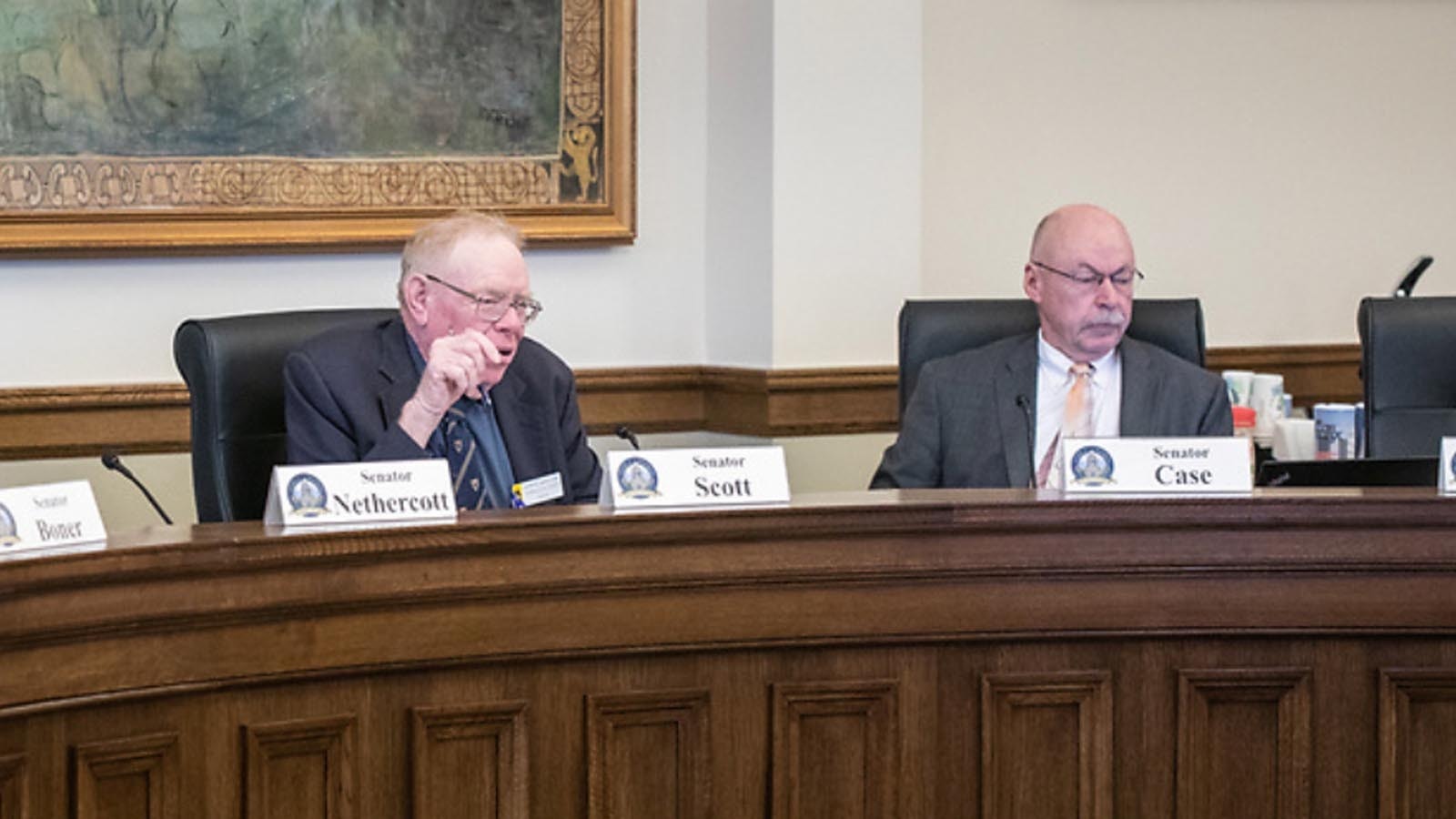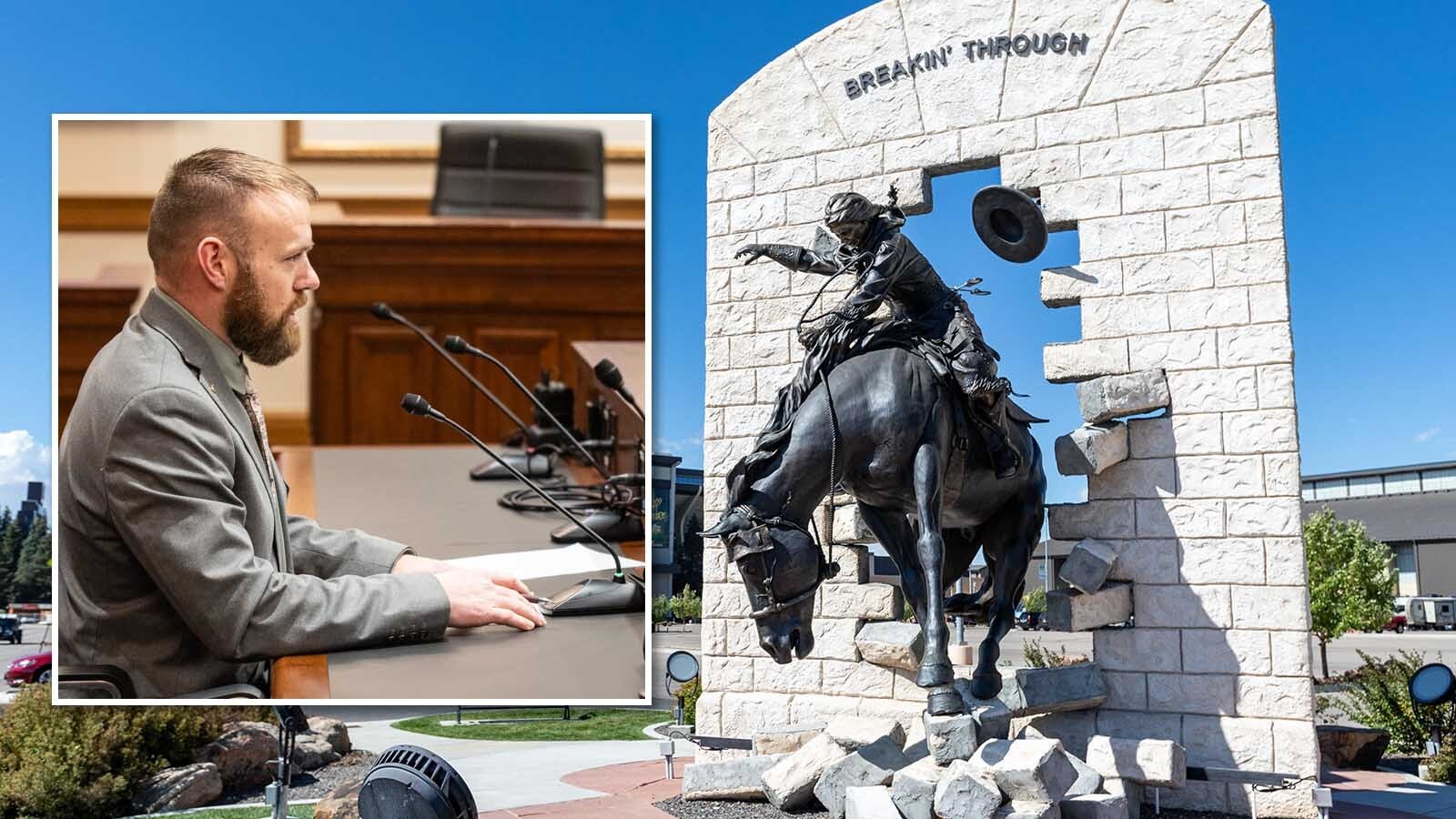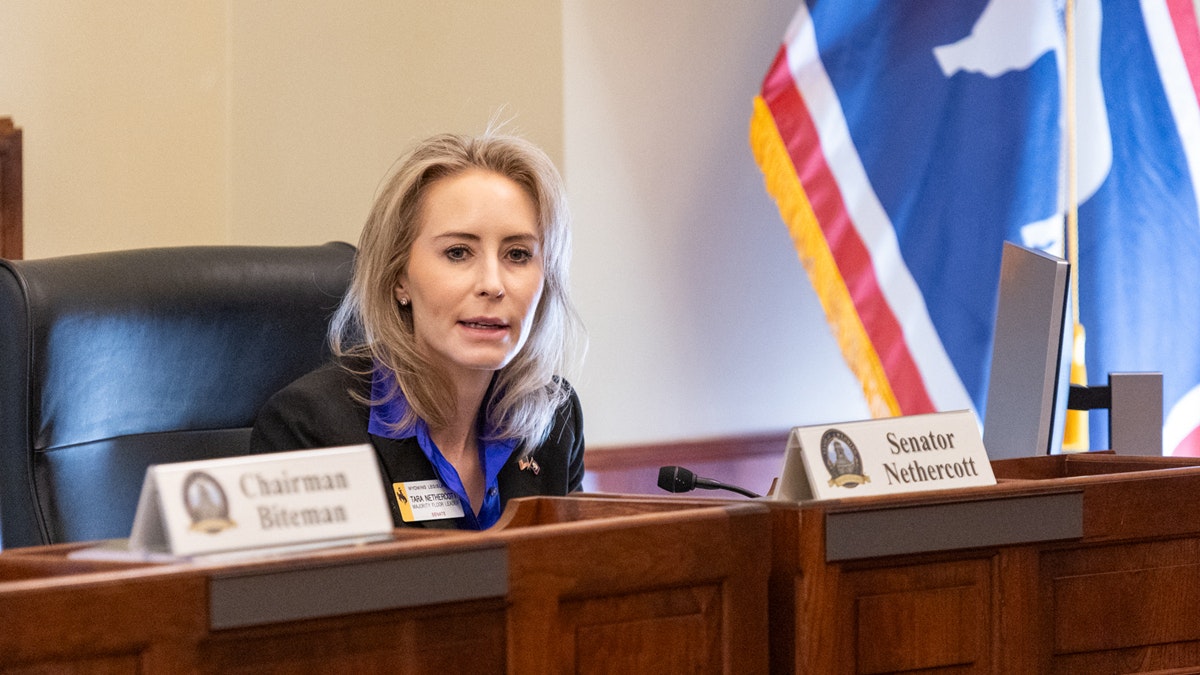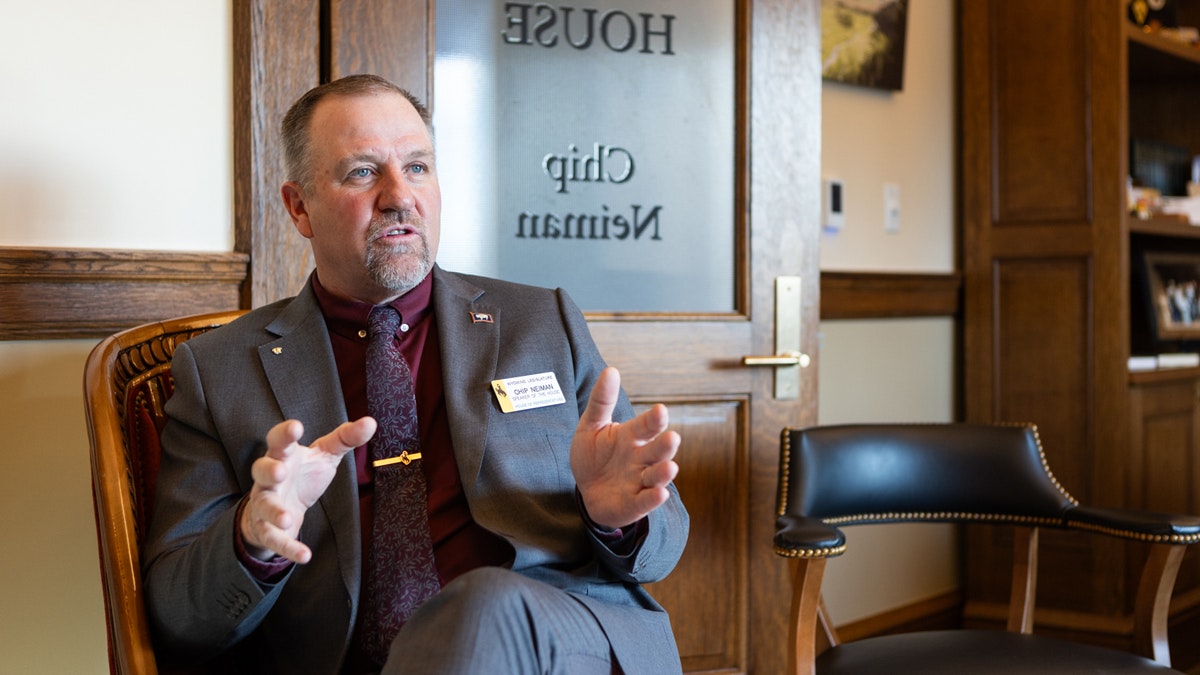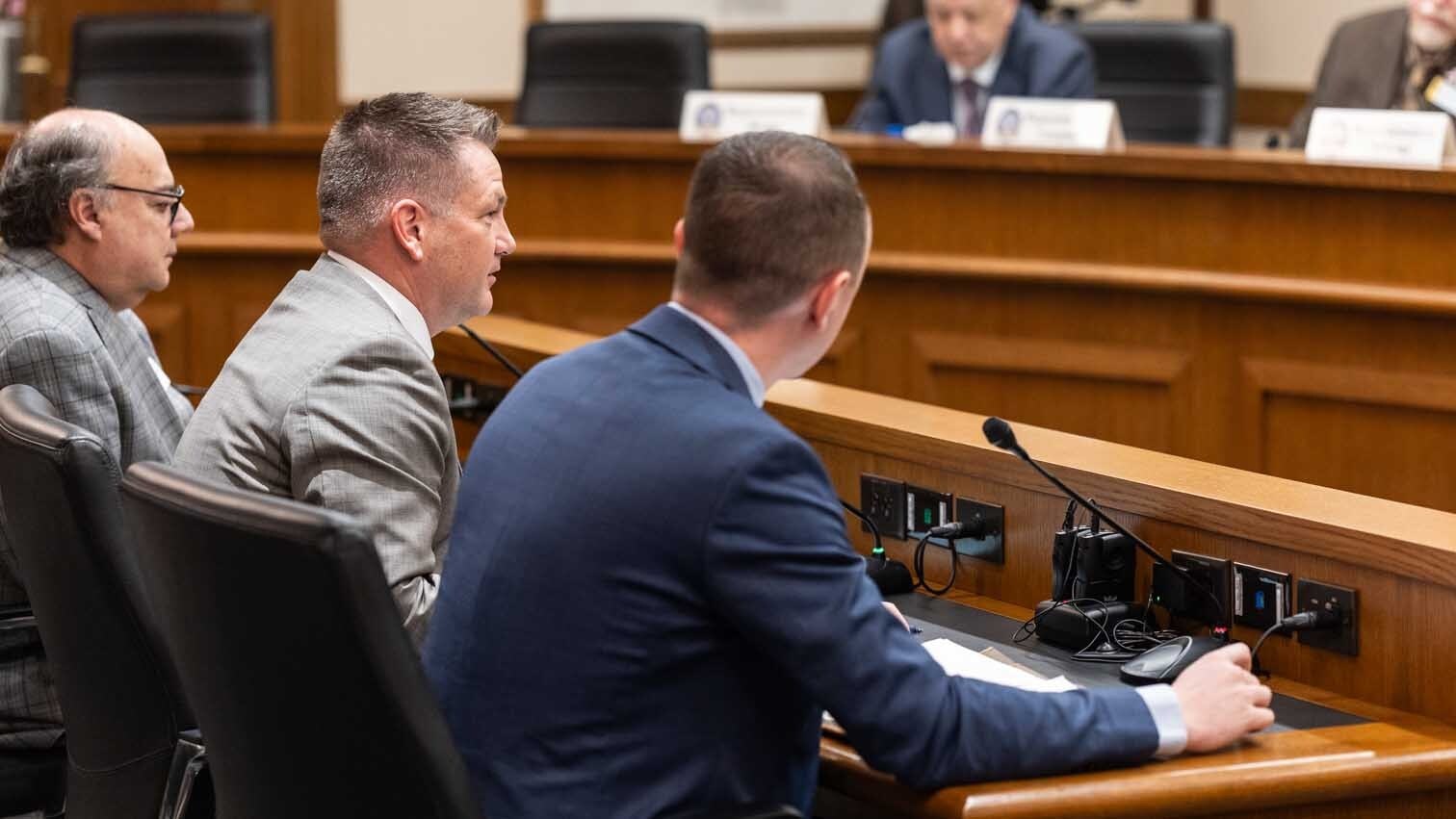Last year, tech mogul Barre Seid quietly gave a $1.6 billion political donation to a little-known conservative group called the Marble Freedom Trust. For many people, this donation serves as a bellwether to the current state of campaign financing.
“Things are getting weirder and weirder out in election world, as we’re all aware,” said State Rep. Dan Zwonitzer, R-Cheyenne, during a Corporations, Elections and Political Subdivisions committee meeting last Thursday, mentioning the donation.
The committee is considering a bill that calls for a U.S. Constitutional amendment banning corporations from making independent campaign expenditures.
The bill calls for improved transparency in corporate political donations. It would require an individual be tied to every corporate donation made. Legislators attempted to balance between the required transparency mandated under the bill and Constitutional rights while discussing this effort.
Political transparency group Wyoming Promise has pushed forward this bill. The group wants Wyoming to join other states in endorsing a Congressional amendment that would overturn the U.S. Supreme Court’s “Citizens United” decision that allows corporations to spend money on a candidate’s behalf without having it counted as a direct donation to the candidate.
Questions about freedom of speech and freedom of the press were raised during the committee meeting.
During a June discussion on this topic, Steve Klein of Wyoming Liberty Group, a nonpartisan group that encourages citizen participation in government and free speech, criticized the validity of legislation like this. He said the only change Citizens United initiated was to prevent the banning of a movie about former Presidential candidate Hillary Clinton and said that the passage of a resolution like this could threaten the First and Fourth Constitutional amendments.
Sen. Charles Scott, R-Casper, expressed some support for elements of “Free and fair elections” but also expressed concern the resolution goes too far and said he wouldn’t vote for it in its currently written form.
Scott said he has concerns about tampering with Constitutional rights but also sees merit in the resolution’s purpose and said he believes that corporations deserve a different designation than natural people.
Under current federal law, beyond providing basic contact information, a corporation does not have to provide information on who is involved with the company or where its campaign finances came from. There are restrictions however on how much corporations, nonprofits and individuals can donate to candidates. These limits do not exist for political action committees.
“I would say that’s my source of discomfort with the law after the recent Supreme Court decisions,” Scott said. “We need to be able to trace those contributions back to which individuals or which known large corporations.”
An amendment to the Constitution could give state legislatures the ability to craft their own legislation to address dark money in politics. Wyoming Promise member Margie Faarias said she hopes the amendment empowers the U.S. Congress and states to address the issue of dark money as they see fit. States could ratify whatever language Congress determines but Sen. Cale Case, R-Lander, said none of this guarantees the Constitution will be followed, which he finds “really scary.”
He brought up an example of how a homeowner could raise an unregulated amount of money to fight against a highway being built in front of their house and a wealthy heiress can’t be prevented from fighting against abortion.
“America lets you do that,” he said. “That’s free speech.”
Case also criticized the bill as being too vague, saying people don’t know what they’re supporting.
“There are many steps over the course of amendment ensuring you are comfortable with it,” Faarias argued in response.
Under current laws, Sheridan resident Kris Korfanta said foreign governments could theoretically get away with making political contributions in American elections.
“Who’s to say who’s creating policy in our country, in our state, in our cities, that’s the problem,” Korfanta said. “It’s so construed and secretive now.”
The recent U.S. House race between U.S. Rep. Liz Cheney and Harriet Hageman set Wyoming records for campaign money raised and spent, with nearly $20 million poured into the race.
A $50,000 contribution from an organization known as “Snow Goose LLC” caught the attention of nonpartisan election watchdog group The Campaign Legal Center. The group filed a complaint with the Federal Elections Commission alleging that Snow Goose is a “shell company” created solely to contribute to a super PAC supporting Hageman’s campaign.
Cheney received donations from dozens of Fortune 500 corporations during her campaign.
Western Conservatives, a shadowy political action committee run by a Colorado lobbyist, spent more than $200,000 influencing state elections in Wyoming this year.
Korfanta describes activities like these as “pay to play, crony capitalism.”
“It’s almost to the point I feel like giving up, but I’m not going to,” she said, pausing intermittently to cry.
Scott said he sees some aspects of the bill, as currently written, as suppressing campaign contributions rather than regulating them.
He also said a lawmaker should be able to tie contributions to specific people.
“The magnitude of the resources that some of them can lay their hands on- that’s troubling to have a corporation treated that way,” he said. “Maybe we need an ability that we’ve lost to regulate some of their spending and campaigns.”
But he also questioned the validity of addressing this issue since both Republicans and Democrats are taking part in receiving dark money.
“The fact that both sides are doing it doesn’t make it right,” countered Ken Chestek, chair of Wyoming Promise.
Scott said he would be open to suggestions for how to “tame” the fair elections bill and said it should be renamed to a title more reflective of the dark money issue it intends to solve.
Case said he’s warming up to the legislation, but isn’t fully on board yet. He’s concerned that the bill would not keep First Amendment freedoms intact. Case said the only guarantee that Constitutional rights would be protected is the bill’s vague pledge to regulate financial contributions.
“That’s a little bit scary, I think that could apply to individuals, that could apply to anything,” he said.
In 2016, Wyoming Promise attempted to bring a similar resolution before the voters and gathered more than 20,000 signatures, falling short of requirements to put the issue on the Wyoming ballot.
In 2019, the resolution passed through the state House on a 37-20 vote but was rejected by the Senate corporations committee.
The corporations committee will consider different variations of the new bill at its next meeting in October.

